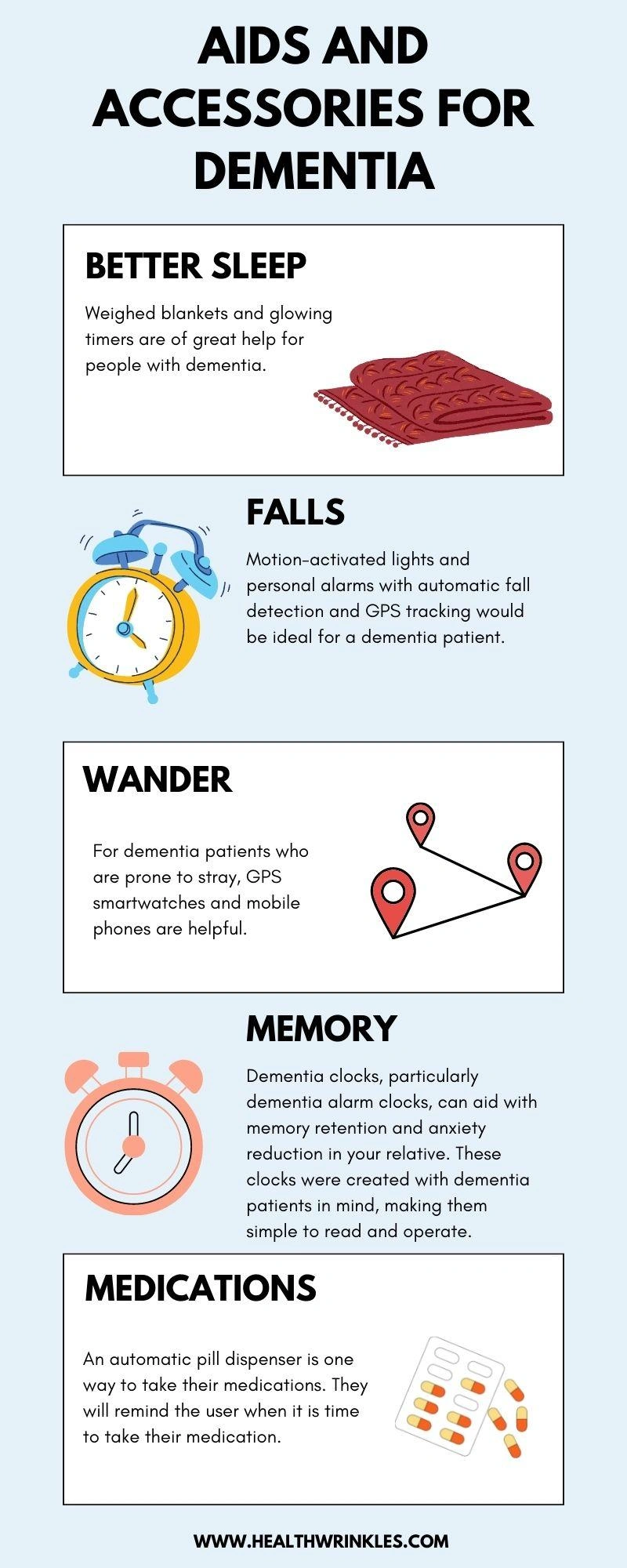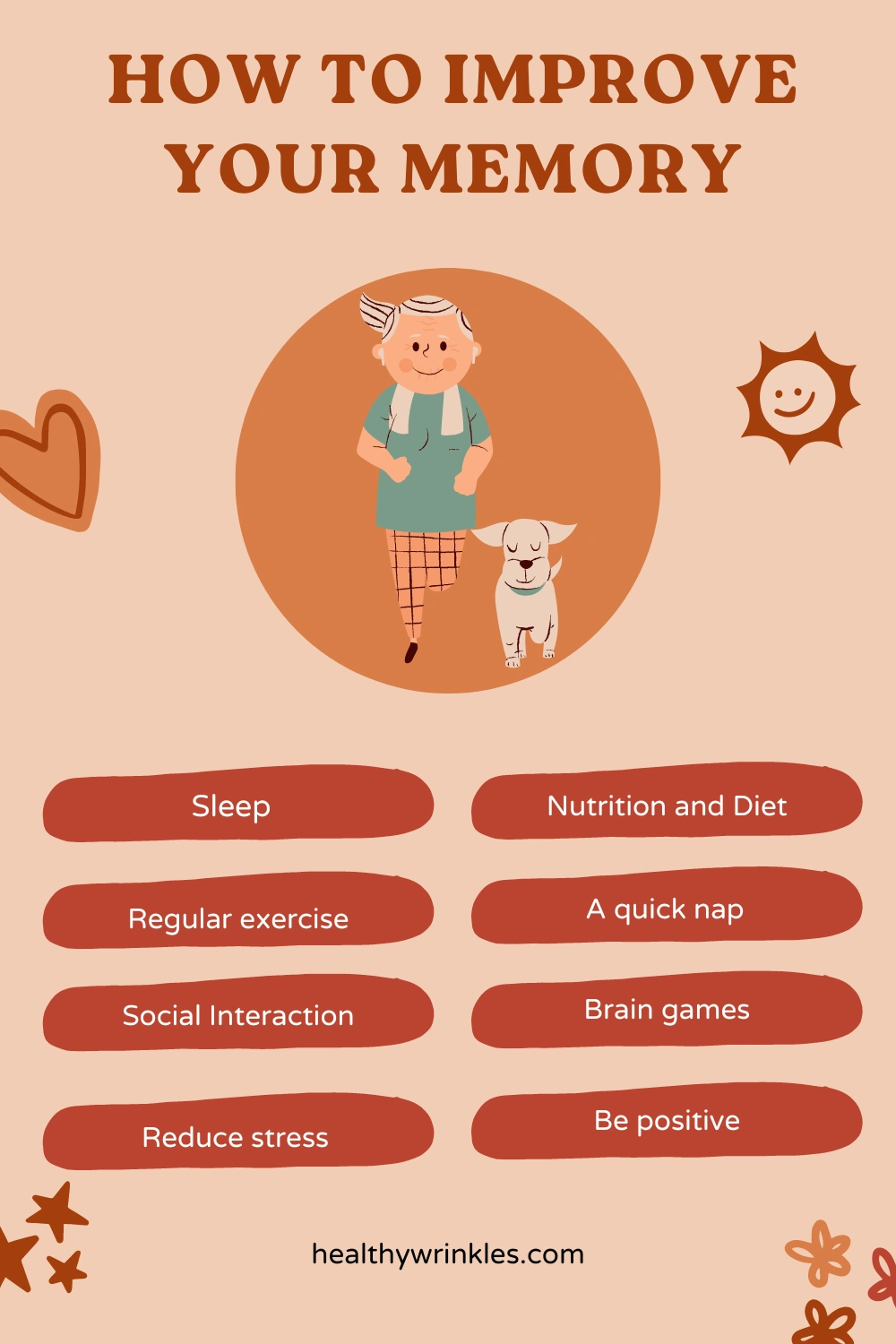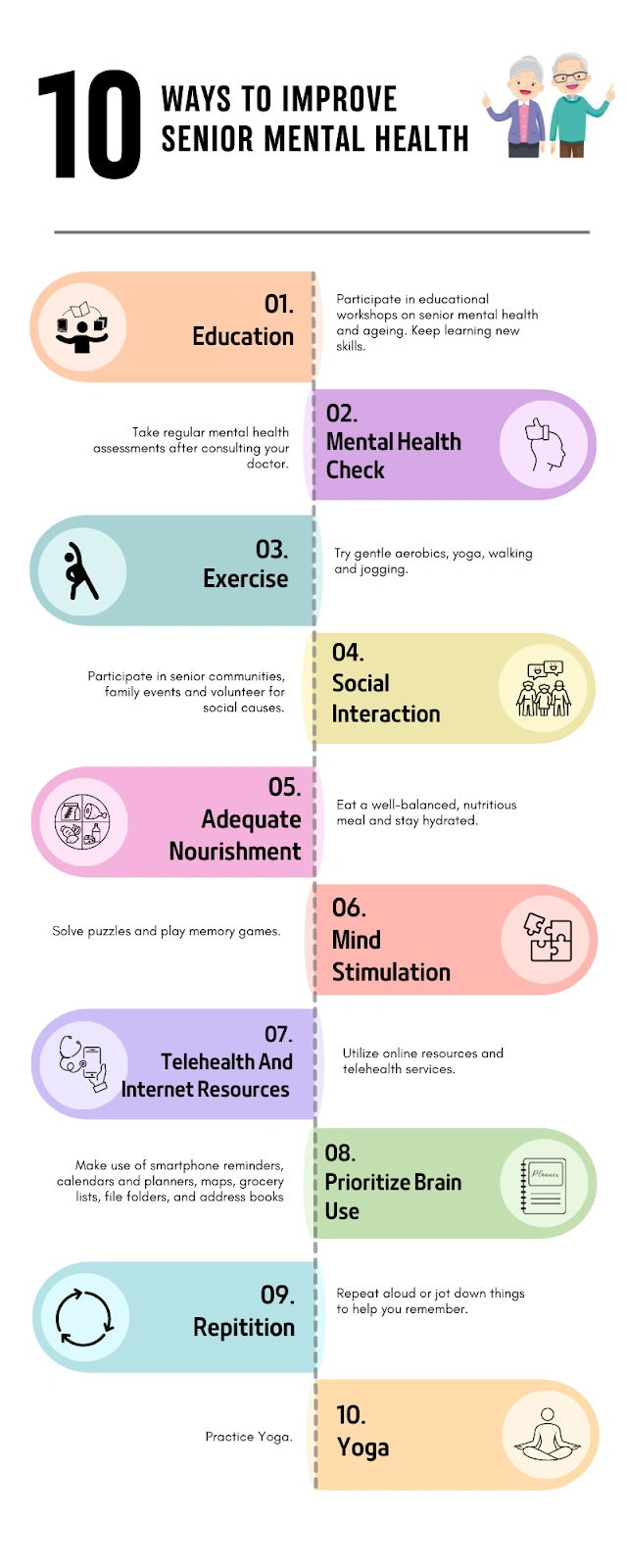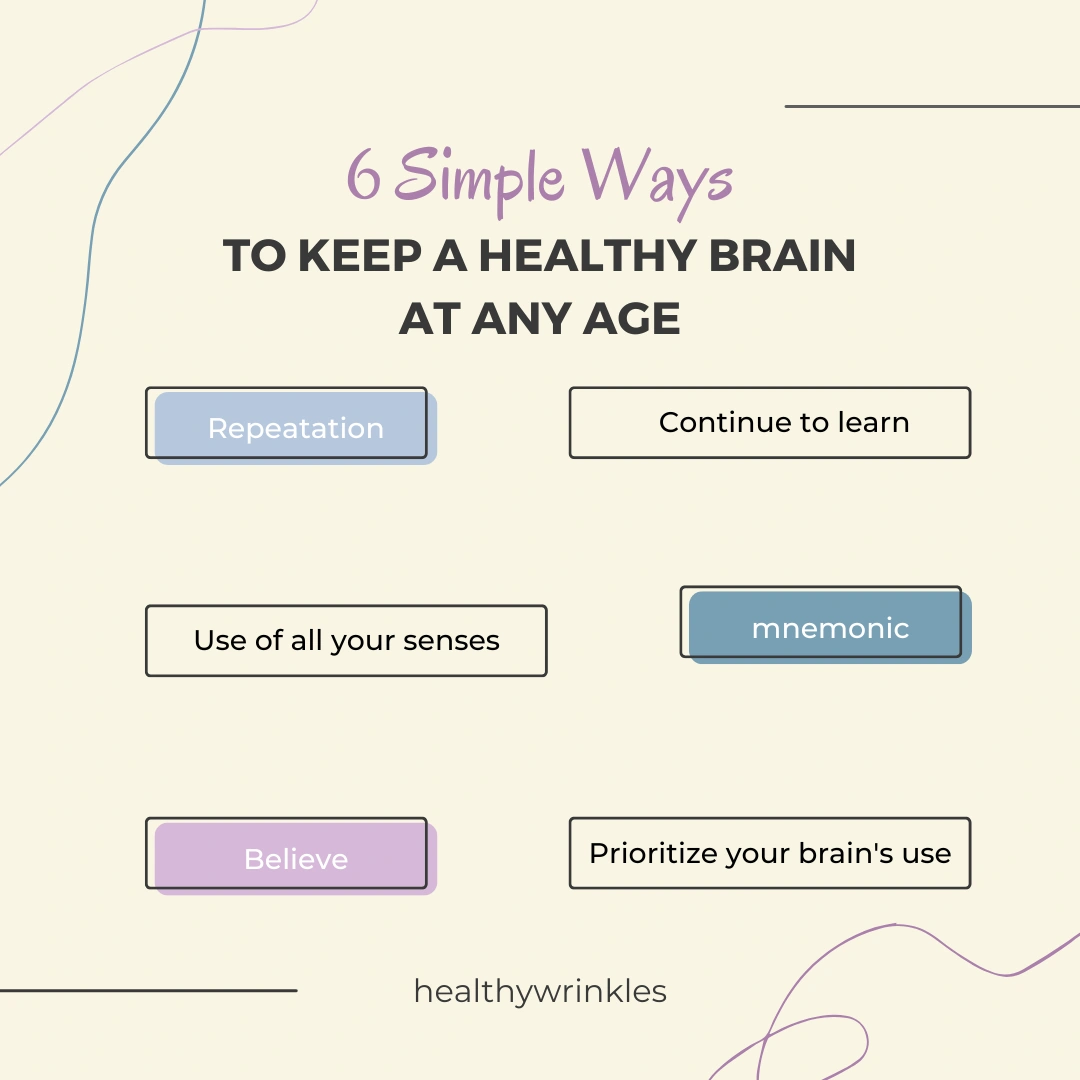6 Tips to keep your brain sharp and healthy at any age
We all notice changes in our ability to remember things as we get older. Maybe you went into the kitchen for no apparent reason, or you couldn't recall a familiar name during a conversation. You might even miss an appointment because you forgot about it.
The majority of our fleeting memory problems as we age are caused by normal changes in the structure and function of the brain. These modifications can slow certain cognitive processes, making it more difficult to learn new things quickly, or they can screen out distractions that can interfere with memory and learning. We can use a variety of strategies to protect and sharpen our minds. Here are seven ideas to get you started.
1. Continue to learn
Mental exercise is thought to activate processes that help maintain individual brain cells and stimulate communication among them. Many people have jobs that keep them mentally active, but engaging in a hobby or learning a new skill can serve the same purpose. Read, join a book club, play chess or bridge, write your life story, do crosswords or jigsaw puzzles, take a class, study music or art, or design a new garden layout. Building and maintaining brain connections is an ongoing process, so prioritize lifelong learning.
2. Make use of all of your senses
The more senses you use to learn something, the more of your brain is involved in remembering it. As you venture into the unknown, use all of your senses. For example, while smelling and tasting a new restaurant dish, try to guess the ingredients. Try sculpting or ceramics, paying attention to the feel and smell of the materials you're using.
3. Have faith in yourself
Myths about aging can contribute to memory loss. When exposed to negative stereotypes about aging and memory, middle-aged and older learners perform worse on memory tasks, while those exposed to positive messages about memory preservation in old age perform better. You have a better chance of keeping your mind sharp if you believe you can improve and put that belief into action.
4. Prioritize your brain's use.
To keep routine information accessible, use calendars and planners, maps, shopping lists, file folders, and address books. Make a spot at home for your glasses, purse, keys, and other frequently used items. Remove clutter from your office or home to reduce distractions and allow you to concentrate on new information you want to remember.
5. Repetition
If you want to remember something you've just heard, read, or thought about, say it aloud or write it down. This reinforces the memory or connection.
When repetition is properly timed, it is most effective as a learning tool. It's best not to repeat something several times in a row, as if cramming for an exam. Instead, re-study the essentials after increasing amounts of time—once an hour, then every hour, then every day. When trying to master complicated information, such as the specifics of a new work assignment.
6. Create a mnemonic.
This is a novel method of remembering lists. Memory cards, drawing, song, and mnemonic devices can be acronyms or sentences (for example, RICE to remember first-aid advice for injured limbs: Rest, Ice, Compression, and Elevation).


























